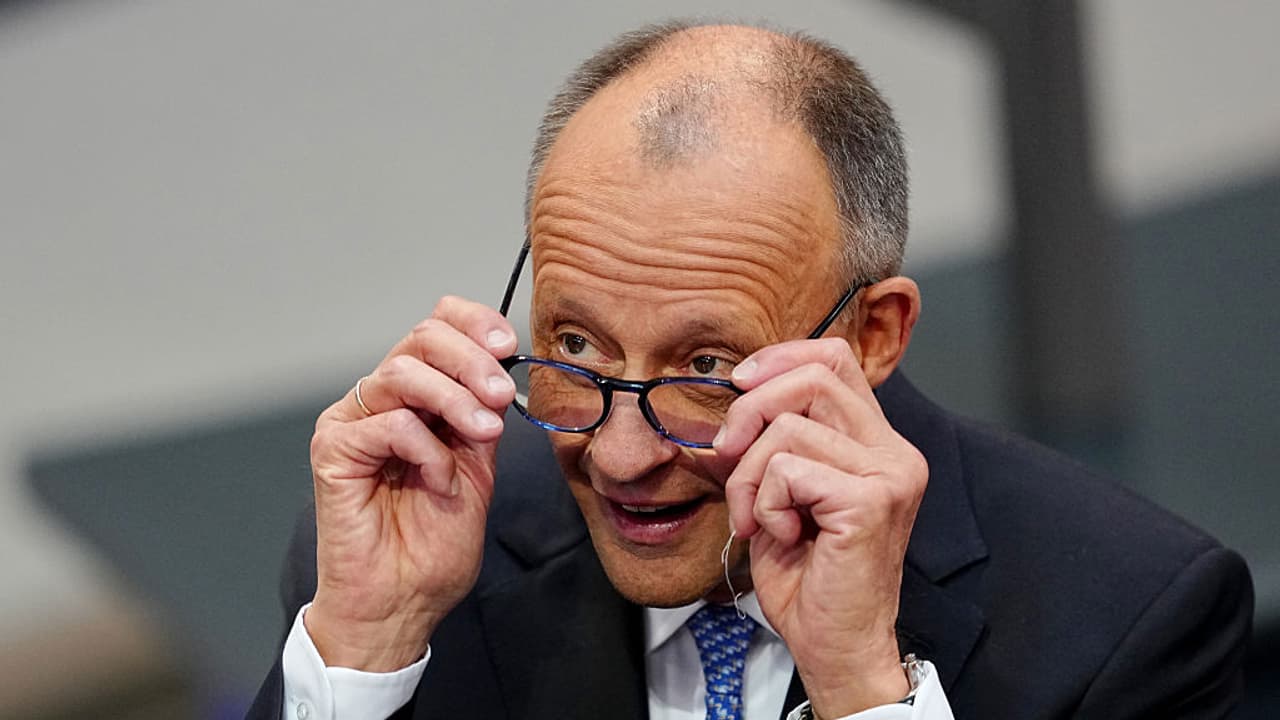Friedrich Merz elected German chancellor after dramatic second-round vote following initial shock defeat in parliament.
Germany's conservative leader, Friedrich Merz, clinched a hard-fought victory in the second round of voting in the Bundestag on Tuesday, securing his position as the country's next chancellor. This came after an unexpected defeat in the first round, marking a rare setback in the country’s post-war history.

Merz, 69, won an absolute majority with 325 votes against 289 in the secret ballot. His victory follows a coalition agreement between his Christian Democratic Union (CDU)/Christian Social Union (CSU) alliance and the centre-left Social Democrats (SPD) of the outgoing Chancellor Olaf Scholz.
A Long-Awaited Ambition Realized
President Frank-Walter Steinmeier appointed Merz as Germany’s 10th post-war chancellor later on Tuesday, along with his cabinet. Merz is expected to embark on a diplomatic tour to Paris and Warsaw on Wednesday after his appointment.
This victory marks the culmination of Merz's long-standing ambition to lead Europe's largest economy. However, his journey to the chancellorship has been fraught with setbacks, notably a significant early challenge from party rival Angela Merkel, who led Germany for 16 years.
First-Round Defeat Raises Concerns
Despite his eventual win, Merz's first-round loss, a historic defeat for Germany’s post-war political landscape, revealed cracks within his coalition. The first round was anticipated to be a mere formality but turned disastrous when Merz fell short by six votes, failing to secure the required absolute majority.
This initial setback raised concerns about Merz’s ability to unite his coalition, with political analyst Holger Schmieding from Berenberg Bank commenting that it “shows that he cannot fully rely on his two coalition parties." Schmieding warned that the loss would "sow some doubts about his ability to fully pursue his agenda, damaging his domestic and international authority at least initially."
Opposition and AfD's Reaction
The far-right Alternative for Germany (AfD) party seized upon Merz's first-round defeat, with AfD co-leader Alice Weidel calling for his resignation. "Merz should step aside and the way should be cleared for a general election," Weidel remarked, branding the result as “a good day for Germany.”
Merz’s loss in the first round shocked both German politics and the wider international community, leading to a flurry of urgent crisis meetings in the Bundestag. CDU parliamentary leader Jens Spahn underscored the importance of swift government formation amid economic and geopolitical instability, urging MPs to consider the global implications of the vote. "The whole of Europe, perhaps even the whole world, is watching this second round of voting," he said.
Economic and Geopolitical Challenges Await
In his victory speech, Merz emphasized the difficult times ahead, stating, "We live in times of profound change, of profound upheaval... and of great uncertainty." He vowed to lead the coalition to success, focusing on Germany's ailing economy and its role in Europe amidst global shifts, particularly with the return of US President Donald Trump to power, who has been critical of Europe’s NATO spending and trade policies.
Merz's initial failure to secure the chancellorship on his first attempt leaves him with a weakened mandate, according to analysts. Capital Economics analyst Franziska Palmas observed that the early setback “does leave Merz severely weakened and suggests that hopes for more stability in German politics may be disappointed.”
Despite the turbulent beginning, Merz will now take on the monumental task of leading Germany through a period of profound change and uncertainty.


